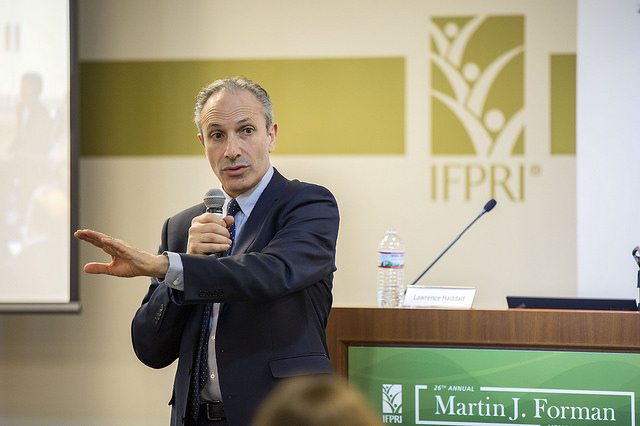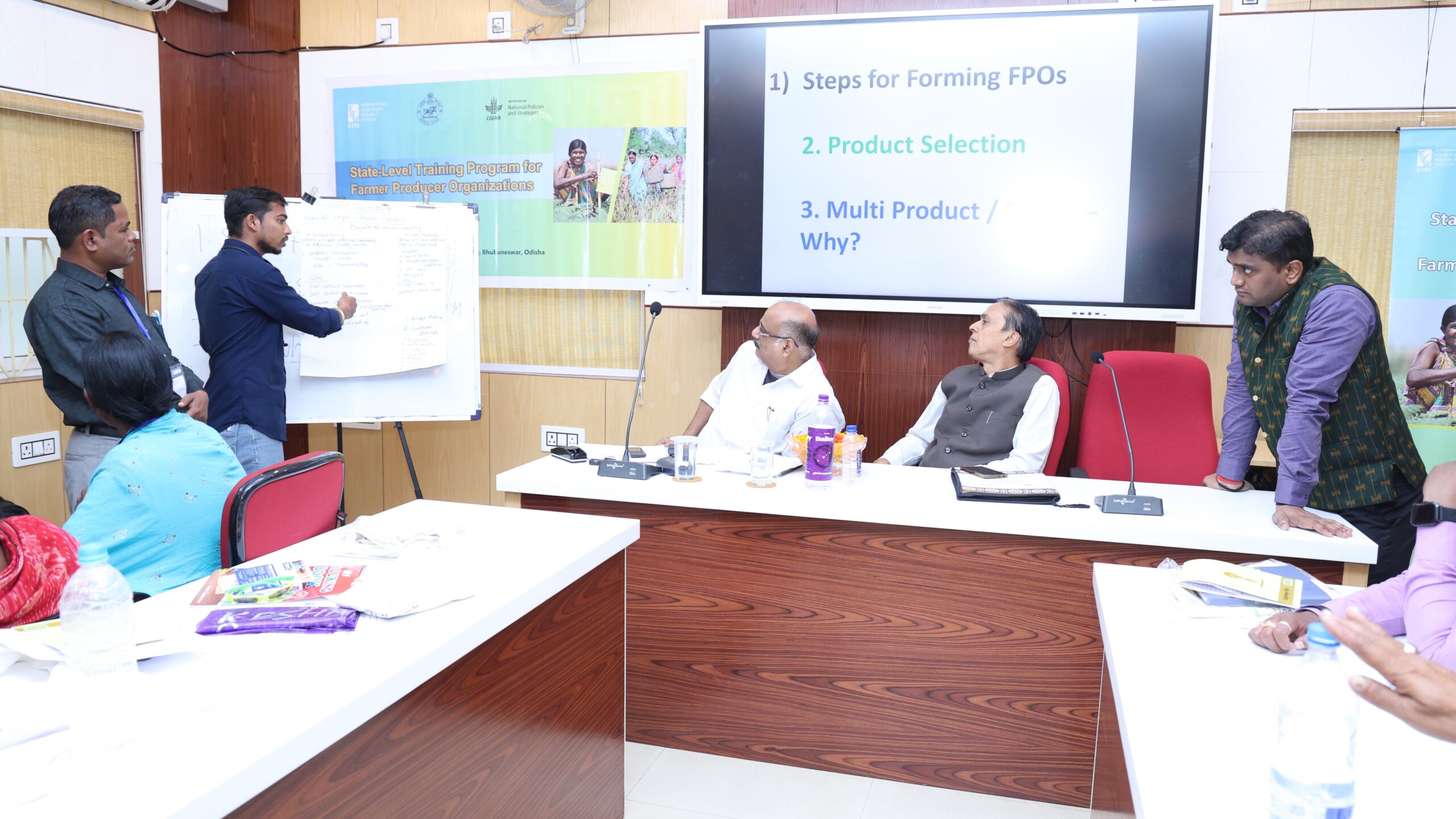“Corporate social responsibility is a copout, it is window dressing; we need to get companies to change their core principles” on food and nutrition, Lawrence Haddad, Executive Director of the Global Alliance for Improved Nutrition (GAIN) and a former IFPRI Senior Research Fellow, told the audience at IFPRI’s 26th Annual Martin J. Forman Memorial Lecture Dec. 19.
“We are at a stalemate with how to engage business and nutrition,” Haddad said, noting that poor diet quality is the number one driver of the global burden of disease and that businesses shape the nutritional quality of food supply and demand in markets around the world. Ignoring businesses means ignoring the potential for getting them to do the right thing, he said.
Haddad’s talk was titled “The Virtuous Emulsification of Business and Nutrition: Why Bother and Ways Forward.” Emphasizing that businesses can do both positive and negative things for nutrition, he suggested that they are ignoring “positive” opportunities for several reasons: fear of dialogue; weak evidence about possible actions, which leads to a real risk of doing harm rather than good; power imbalances between big companies and governments; and weakly governed spaces. Businesses can indeed help to shape the demand for nutritious foods, he said. That requires ’virtuous emulsification,”—that is, building an environment that fosters public-private engagement, lowering risks for both public and private organizations, strengthening the accountability infrastructure, and governments setting rules that everyone plays by.
“We have a policy problem,” Shenggen Fan, IFPRI’s Director General, said in his closing remarks. While tremendous progress has been made in integrating nutrition in policymaking, program development, and setting investment priorities, particularly at the country level, he said, much work remains, and a critical issue is how to engage the private sector.
Recognizing that the private sector’s purpose is to maximize profit, Fan said that asking businesses to deliver nutrition while sacrificing profit is hopeless. But he noted that water, energy, and fertilizers for crops such as rice, wheat, and maize are subsidized globally to the tune of $500 billion per year, and so efforts should be made to ensure that some of that money goes to promoting good nutrition and sustainable development. The policy and regulatory environments should also be reformed to facilitate both profits and efforts to boost nutrition, Fan said.
The lecture series is named for the late Dr. Martin J. Forman, who headed the Office of Nutrition at USAID for more than 20 years, and commemorates the significant impact that he had on international nutrition. Kenan Forman, Forman’s son, said after the lecture that the original intent of the series was to provide a forum for champions of nutrition to freely share their ideas and challenge the status quo, and that Haddad’s talk “certainly delivered on that aim!”
In 1971, Martin Forman advocated examining the national food system, searching for opportunities to improve quality and nutrition, and sought greater involvement from the private sector in the local production and marketing of nutritious foods. Forty-five years later, Haddad echoed those sentiments and urged that more time should not pass before action is taken.
Katarlah Taylor is an Information and Knowledge Management Facilitator at IFPRI.







